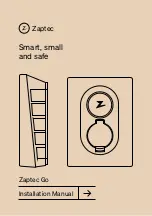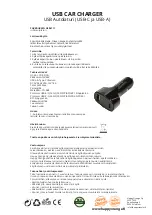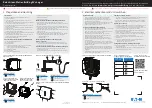
Navigate on Autopilot activates and deactivates as
appropriate, based on the type of road you are driving
on. For example, if Autosteer is active and Navigate on
Autopilot is enabled, Navigate on Autopilot
automatically becomes active when you reach a
controlled-access highway on your navigation route.
Whenever Navigate on Autopilot is active, the
instrument panel displays the driving lane as a single
blue line in front of Model S:
When Navigate on Autopilot is active and you approach
an off-ramp or interchange along your navigation route,
the appropriate turn signal engages and Autosteer
maneuvers Model S onto the off-ramp or interchange.
WARNING:
Never depend on Navigate on
Autopilot to determine an appropriate lane at an
off-ramp. Stay alert and perform visual checks to
ensure that the driving lane is safe and
appropriate.
When you leave a controlled-access highway (for
example, you take an exit or you enter a section of the
navigation route that is no longer supported), Navigate
on Autopilot reverts back to Autosteer— a chime sounds
and the instrument panel displays the driving lane lines
in blue (instead of the single blue in front of Model S).
NOTE:
When determining navigation routes, and
maneuvers at interchanges, Navigate on Autopilot
considers whether or not you want to use High
Occupancy Vehicle (HOV) lanes. Therefore, ensure the
Use HOV Lanes
setting is appropriate for your
circumstances (see
Maps and Navigation on page 131
).
If the setting is off, Navigate on Autopilot never uses a
HOV lane, regardless of time of day. If the setting is on,
Navigate on Autopilot uses HOV lanes, whenever
applicable.
WARNING:
When Navigate on Autopilot
deactivates, Autosteer remains active. Always be
prepared to take appropriate action.
WARNING:
Navigate on Autopilot may not always
attempt to exit at an off-ramp or change lanes,
even when an exit or lane change is determined by
the navigation route. Always remain alert and be
prepared to manually steer onto an off-ramp, or
make a lane change to prepare for, or to exit at, an
off-ramp or interchange.
You can cancel Navigate on Autopilot at any time by
touching
Navigate on Autopilot
on the map’s turn-by-
turn direction list (Model S reverts back to Autosteer), or
by canceling Autosteer entirely (see
).
Lane Changes
Navigate on Autopilot changes lanes to either prepare
Model S for an upcoming off-ramp, to increase your
driving speed (not to exceed your set cruising speed), or
to move Model S out of a passing lane when you are not
actively passing other road users. A message displays at
the top of the map's turn-by-turn direction list to notify
you when an upcoming lane change is required to stay
on your navigation route. The instrument panel displays
the upcoming driving path:
If
Require Lane Change Confirmation
is turned
off
,
Navigate on Autopilot engages the appropriate turn
signal, checks for vehicles and objects, and when
appropriate, maneuvers Model S into the adjacent lane.
If
Require Lane Change Confirmation
is turned
on
, you
must engage the appropriate turn signal to confirm that
you want Navigate on Autopilot to proceed with the
lane change. If you do not confirm the lane change
within three seconds, a chime sounds to remind you that
Navigate on Autopilot requires your confirmation to
change lanes.
NOTE:
If you ignore a route-based lane change
suggestion (for example, you are driving in the left lane
while approaching an off-ramp on the right side of the
highway), Navigate on Autopilot is unable to maneuver
onto the off-ramp and as a result, you are re-routed to
your destination.
Navigate on Autopilot
94
MODEL S Owner's Manual
















































